Nori Rat CCL4 ELISA Kit
$461.00 – $832.00
This ELISA kit is for quantification of CCL4 in rat. This is a quick ELISA assay that reduces time to 50% compared to the conventional method, and the entire assay only takes 3 hours. This assay employs the quantitative sandwich enzyme immunoassay technique and uses biotin-streptavidin chemistry to improve the performance of the assays. An antibody specific for CCL4 has been pre-coated onto a microplate. Standards and samples are pipetted into the wells and any CCL4 present is bound by the immobilized antibody. After washing away any unbound substances, a detection antibody specific for CCL4 is added to the wells. Following wash to remove any unbound antibody reagent, a detection reagent is added. After intensive wash a substrate solution is added to the wells and color develops in proportion to the amount of CCL4 bound in the initial step. The color development is stopped, and the intensity of the color is measured.
Alternative names for CCL4: Chemokine (C-C motif) ligand 4 (CCL4)
This product is for laboratory research use only not for diagnostic and therapeutic purposes or any other purposes.
- Description
- How Elisa Works
- Product Citation (0)
- Reviews (0)
Description
Nori Rat CCL4 ELISA Kit Summary
Alternative names for CCL4: Chemokine (C-C motif) ligand 4 (CCL4)
| Assay Type | Solid Phase Sandwich ELISA |
| Format | 96-well Microplate or 96-Well Strip Microplate |
| Method of Detection | Colorimetric |
| Number of Targets Detected | 1 |
| Target Antigen Accession Number | P50230 |
| Assay Length | 3 hours |
| Quantitative/Semiquantitative | Quantitative |
| Sample Type | Plasma, Serum, Cell Culture, Urine, Cell/Tissue Lysates, Synovial Fluid, BAL, |
| Recommended Sample Dilution (Plasma/Serum) | No dilution for sample <ULOQ; sufficient dilution for samples >ULOQ |
| Sensitivity | 3 pg/mL |
| Detection Range | 15.6-1000 pg/mL |
| Specificity | Natural and recombinant rat CCL4 |
| Cross-Reactivity | < 0.5% cross-reactivity observed with available related molecules, < 50% cross-species reactivity observed with species tested. |
| Interference | No significant interference observed with available related molecules |
| Storage/Stability | 4 ºC for up to 6 months |
| Usage | For Laboratory Research Use Only. Not for diagnostic or therapeutic use. |
| Additional Notes | The kit allows for use in multiple experiments. |
Standard Curve
Kit Components
1. Pre-coated 96-well Microplate
2. Biotinylated Detection Antibody
3. Streptavidin-HRP Conjugate
4. Lyophilized Standards
5. TMB One-Step Substrate
6. Stop Solution
7. 20 x PBS
8. Assay Buffer
Other Materials Required but not Provided:
1. Microplate Reader capable of measuring absorption at 450 nm
2. Log-log graph paper or computer and software for ELISA data analysis
3. Precision pipettes (1-1000 µl)
4. Multi-channel pipettes (300 µl)
5. Distilled or deionized water
Protocol Outline
1. Prepare all reagents, samples and standards as instructed in the datasheet.
2. Add 100 µl of Standard or samples to each well and incubate 1 h at RT.
3. Add 100 µl of Working Detection Antibody to each well and incubate 1 h at RT.
4. Add 100 µl of Working Streptavidin-HRP to each well and incubate 20 min at RT.
5. Add 100 µl of Substrate to each well and incubate 5-30 min at RT.
6. Add 50 µl of Stop Solution to each well and read at 450 nm immediately.
Background:
Chemokine (C-C motif) ligand 4 (CCL4), is a protein which in humans is encoded by the CCL4 gene.[1] CCL4, also known as Macrophage inflammatory protein-1β (MIP-1β) is a CC chemokine with specificity for CCR5 receptors. It is a chemoattractant for natural killer cells, monocytes and a variety of other immune cells.[2] CCL4 is a major HIV-suppressive factor produced by CD8+ T cells.[3] Perforin-low memory CD8+ T cells that normally synthesize MIP-1-beta.[4] CCL4 has been shown to interact with CCL3.[5]
References
- Irving SG, et al. (1990). Two inflammatory mediator cytokine genes are closely linked and variably amplified on chromosome 17q. Nucleic Acids Res. 18 (11): 3261–70.
- Bystry RS, Aluvihare V, Welch KA, Kallikourdis M, Betz AG (2001). B cells and professional APCs recruit regulatory T cells via CCL4. Nat. Immunol. 2 (12): 1126–32.
- Cocchi F, DeVico AL, Garzino-Demo A, Arya SK, Gallo RC, Lusso P (1995). Identification of RANTES, MIP-1 alpha, and MIP-1 beta as the major HIV-suppressive factors produced by CD8+ T cells. Science 270 (5243): 1811–5.
- Kamin-Lewis R, Abdelwahab SF, Trang C, Baker A, DeVico AL, Gallo RC, Lewis GK (2001). Perforin-low memory CD8+ cells are the predominant T cells in normal humans that synthesize the β-chemokine macrophage inflammatory protein-1β. Proc. Natl. Acad. Sci. U.S.A. 98 (16): 9283–8.
- Guan, E; Wang J, Norcross M A (2001). Identification of human macrophage inflammatory proteins 1alpha and 1beta as a native secreted heterodimer. J. Biol. Chem. 276 (15): 12404–9.
Be the first to review “Nori Rat CCL4 ELISA Kit”
You must be logged in to post a review.
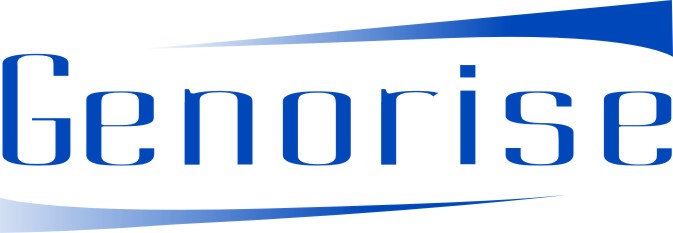






















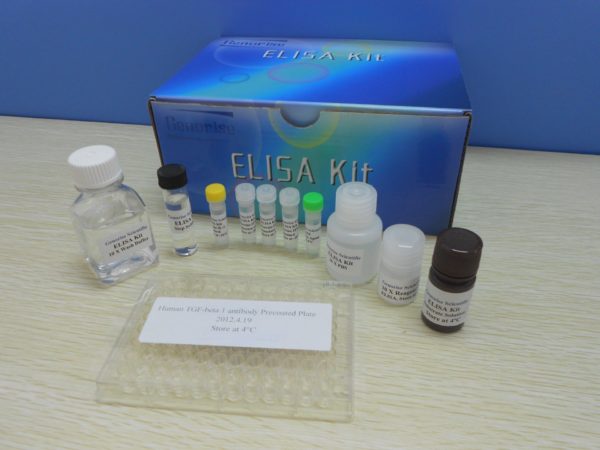
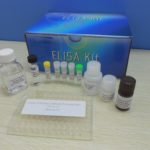
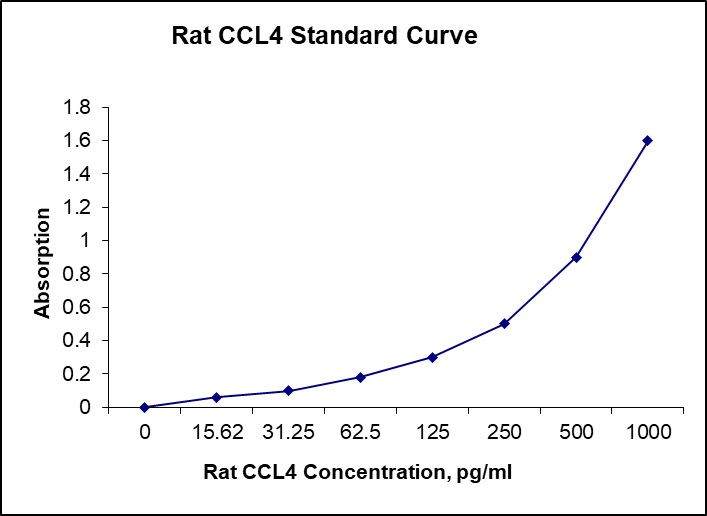
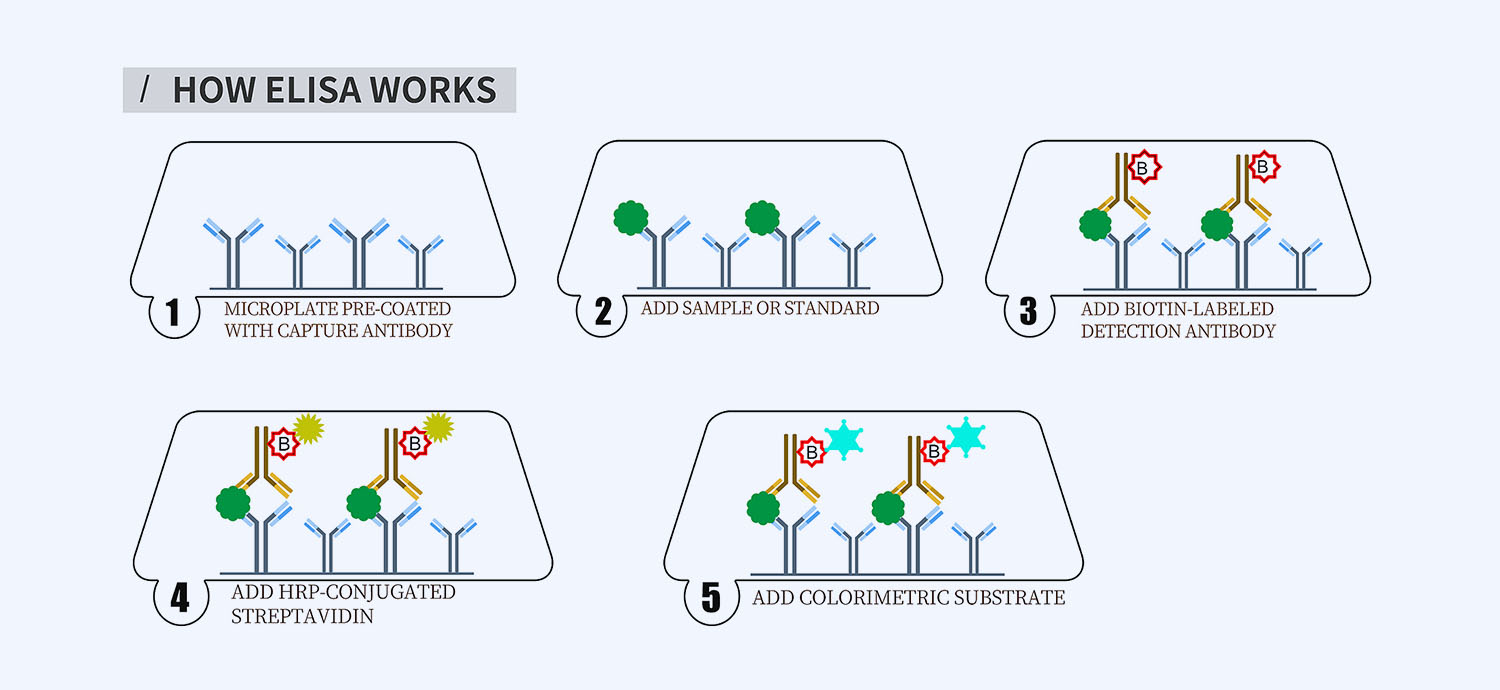
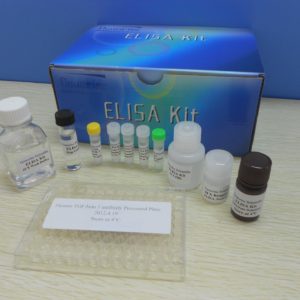
Reviews
There are no reviews yet.